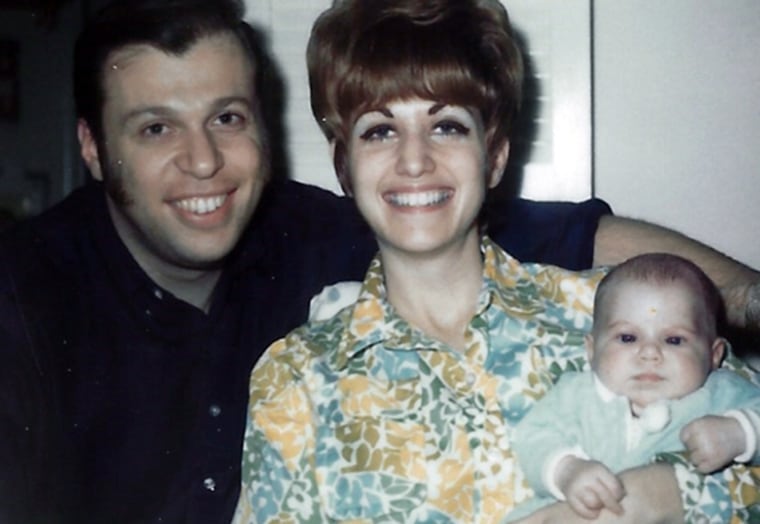Randee Dawn is a contributing writer for TODAY and has a new novel out Aug. 23, "Tune in Tomorrow," about a fantastical reality show run by mythical creatures, for mythical creatures ... but starring humans. She was inspired by her years working in entertainment journalism and peeking behind the scenes of TV shows and movies, some of which has ended up in her debut novel. She penned this essay for TODAY based on her longtime love of all things TV and film — except for one very specific, personal thing.
When I was a little girl and still learning to talk, my mother played a game with me: “Who are you?” she’d ask, and I’d rattle off any number of answers I had learned. I was a girl. I was blond. I was Jewish. I liked to read. And I was adopted.
In my mom’s way of thinking, I might not know what some of those words meant — but by the time I was old enough to ask, they wouldn’t be strange or alien concepts. I’ve always been grateful for that: Adoption was as much a part of me as the color of my hair, or the family faith, or anything else about me.
But if I’d only ever learned about adoption from television and the movies — well, I’d have a hard time believing anyone has a positive adoptive experience. For every nuanced, well-told portrayal today (like Randall on “This Is Us” or Lily in “Modern Family”), there are older TV movies like “Natural Enemy” or “Adopting Terror” in which any number of horrors come to pass: Adoptee is evil. Adoptee is estranged and resentful. Adoptee was stolen by criminals who now raise her. Adoptive parents are cruel and dismissive. Adoptee totally abandons the parents who raised her in the pursuit of “blood” relations whom she’s never even met.
On all ends of the spectrum, adoption is frequently presented as a gray, murky area full of offensive semantic choices and the suggestion that all adoptees are broken — and might turn on you in a heartbeat. The nuances are much more complicated and deserve better treatment in fictional settings.
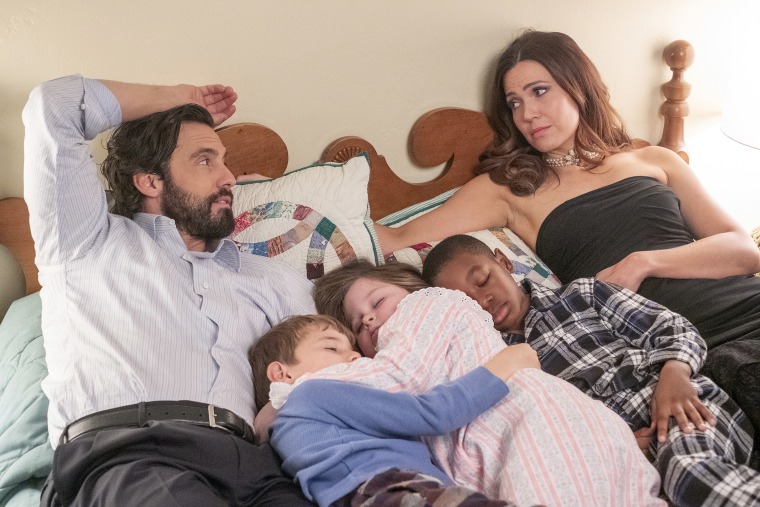
I started noticing this more once I began writing about soap operas for an industry magazine, and I saw these tropes play out frequently amid the melodrama. While there are awesome, forward-thinking stories told on soaps — I used some of those tropes in my new novel, “Tune in Tomorrow” — soapy shows are often preoccupied with offspring. Who are the parents? More importantly, who’s the “real” daddy/mama? Which parent didn’t know they even had a secret child? An adoptee’s birth parents come knocking to claim “their own blood!” And a mysterious stranger arrives in town to make trouble, then ends up being related to a key figure on the show — whom they might never have met. What horrible things will they now do to cement their status among a “real” birth family?
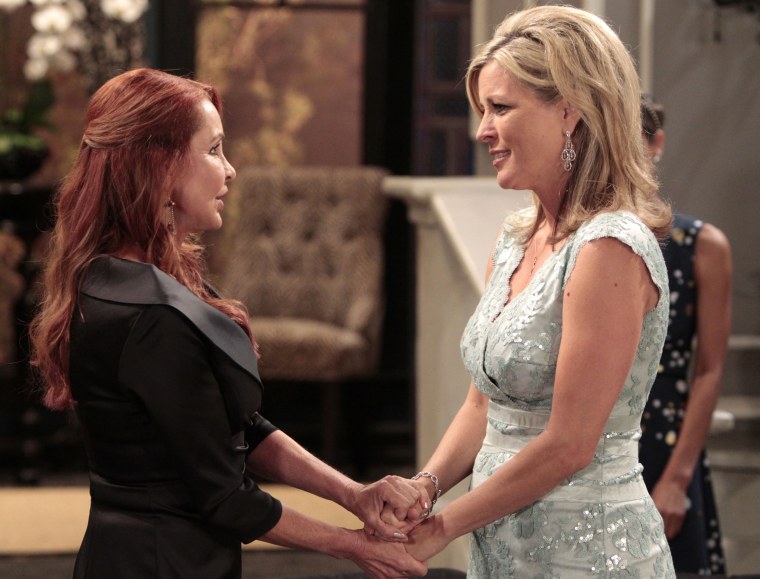
TV shows' preoccupation with the evils of adoption is endless, and endlessly exhausting. How often do stories talk about “blood” relatives being the most important in a person’s life? About a sibling who might be a complete psychopath — but you can’t abandon them or turn them in because they’re a “blood” relative? How about older characters who cut out anyone who’s not a “blood” relation?
Of course, this thinking exists in the real world — there’s at least one close relative in my family who was disinterested in me because I wasn’t of his “blood” — but TV shapes our impressions and underscores “blood” or "DNA" as the only way a person can be legitimate in a family. Fortunately, everyone else in my family didn’t give two hoots that I wasn’t “born” into it.
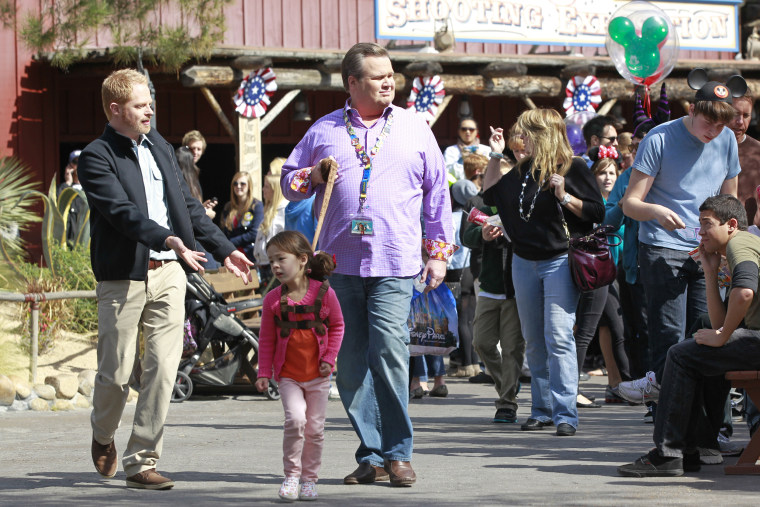
Still, hearing it brought up so often in TV shows is problematic: By using “real” and “natural” to designate biological children, does this mean that I was “pretend” or “unnatural”? Words mean things, and words connote attitude and tone. Children who are adopted or fostered are family; labeling them as “other” is harmful and abusive — something TV show writers should be more aware of.
The truth is that a 1994 study, “Growing up adopted: A portrait of adolescents and their families,” revealed that “most adopted children and teenagers succeed … adopted adolescents tend to do as well as adolescents in general.”
Fortunately, both TV and movies are starting to wake up to the nuances of adoptees and both biological and adoptive families. Every story is different, and every story has its own way of playing out. As blended families become more commonplace, series appear to be phasing out the use of “adopted” as a slur, or as the most important aspect of a character’s personality. Think of “Anne With an ‘E’,” “Parenthood,” “Glee” and “The Fosters” as just a few examples of series trying to push back on the expectation of adoption as tragedy, rather than a chance to reimagine what family looks like.
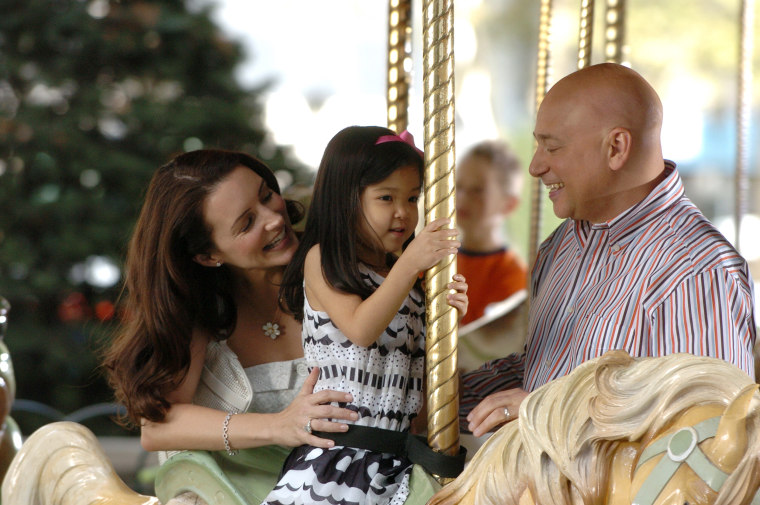
In “Tune in Tomorrow’s” fantastical docusoap, one actor’s character learns that he’s not actually related to the terrible woman he’s always thought of as his mother. But the fictional show undergoes an upheaval that never lets that revelation fully play out. That was intentional: By using that twist in the story, I could turn up the volume to 11 on what an out-of-the-blue “discovery” might be like — and then insist that it doesn’t have to change everything.
Adoption has once again become a major talking point since the U.S. Supreme Court overturned Roe v. Wade. The discussion now seems to be that adoption is always an option. It is — for some. And it isn’t — for others. Many people will not choose adoption, for their own reasons that are wide and varied — but may have been influenced by what they see on TV or in the movies. They, and we, deserve to have it presented as a potential happy ending.
Adoption is not a political rallying point, and it shouldn’t be a throwaway plot point to ratchet up drama on a TV show.
Adoption was a choice my biological parents made, for personal reasons. It was a choice my adoptive parents — who are my mom and dad — made, also for personal reasons. It’s not a political rallying point, and it shouldn’t be a throwaway plot point to ratchet up drama on a TV show. Adoption is just one more flavor in the rainbow of ways to raise children. It does change everything — but everything does not have to change because adoption has come into the picture.
It’s just another way for me, and the millions of others like me, to understand: “Who are you?”
“Tune in Tomorrow” publishes Aug. 23 and can be found in bookstores and online.
